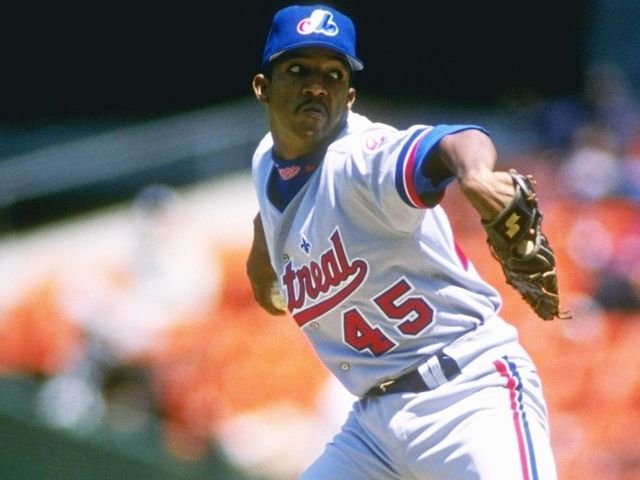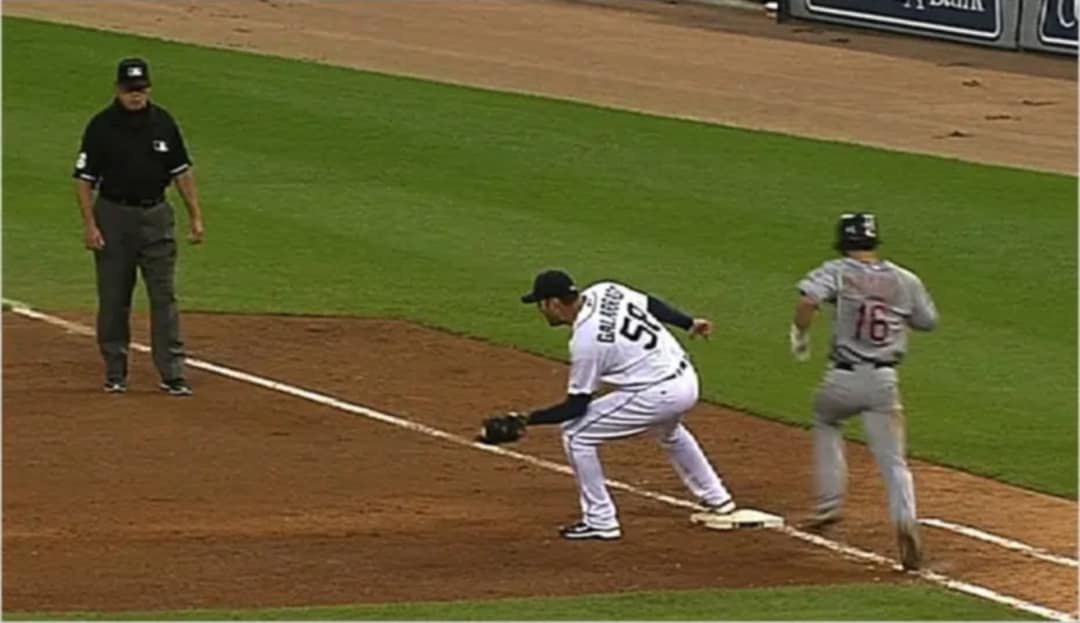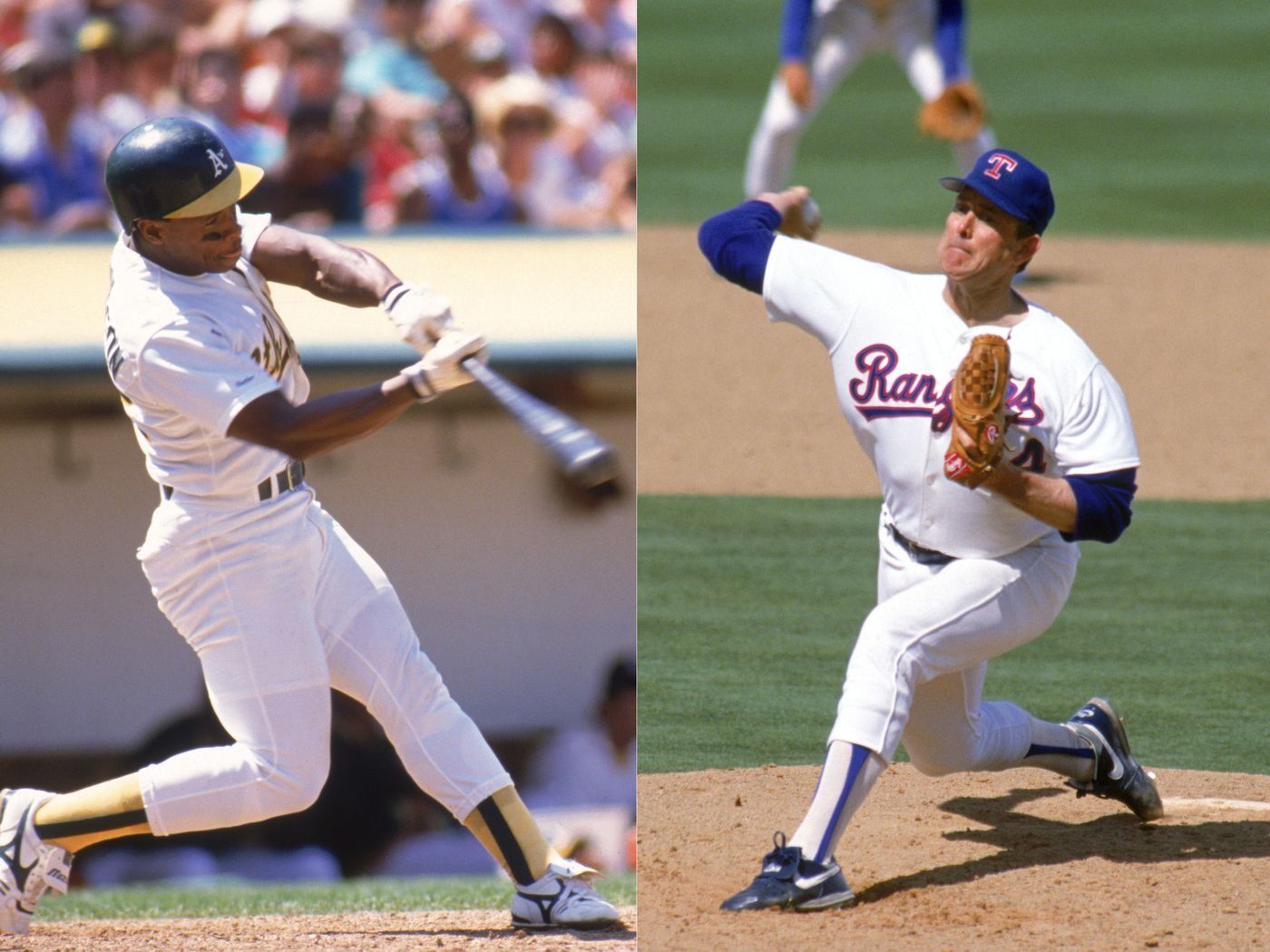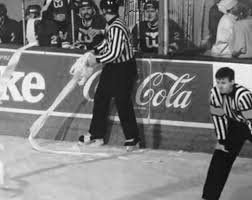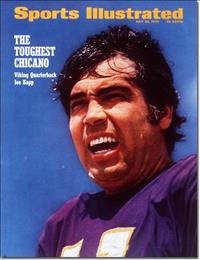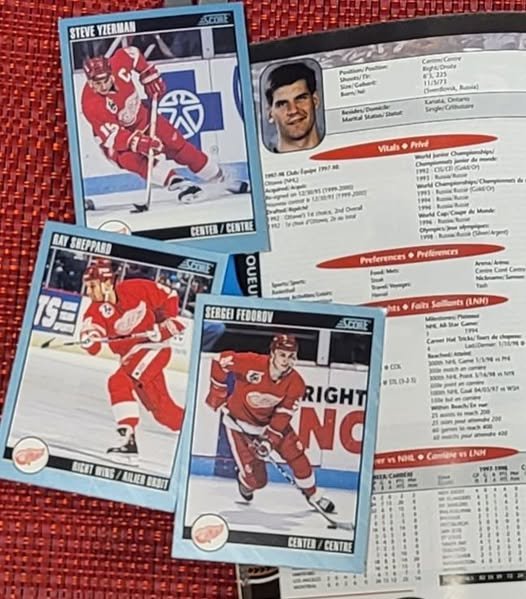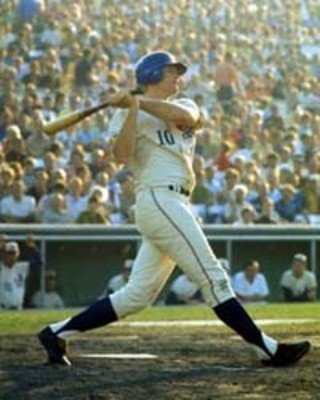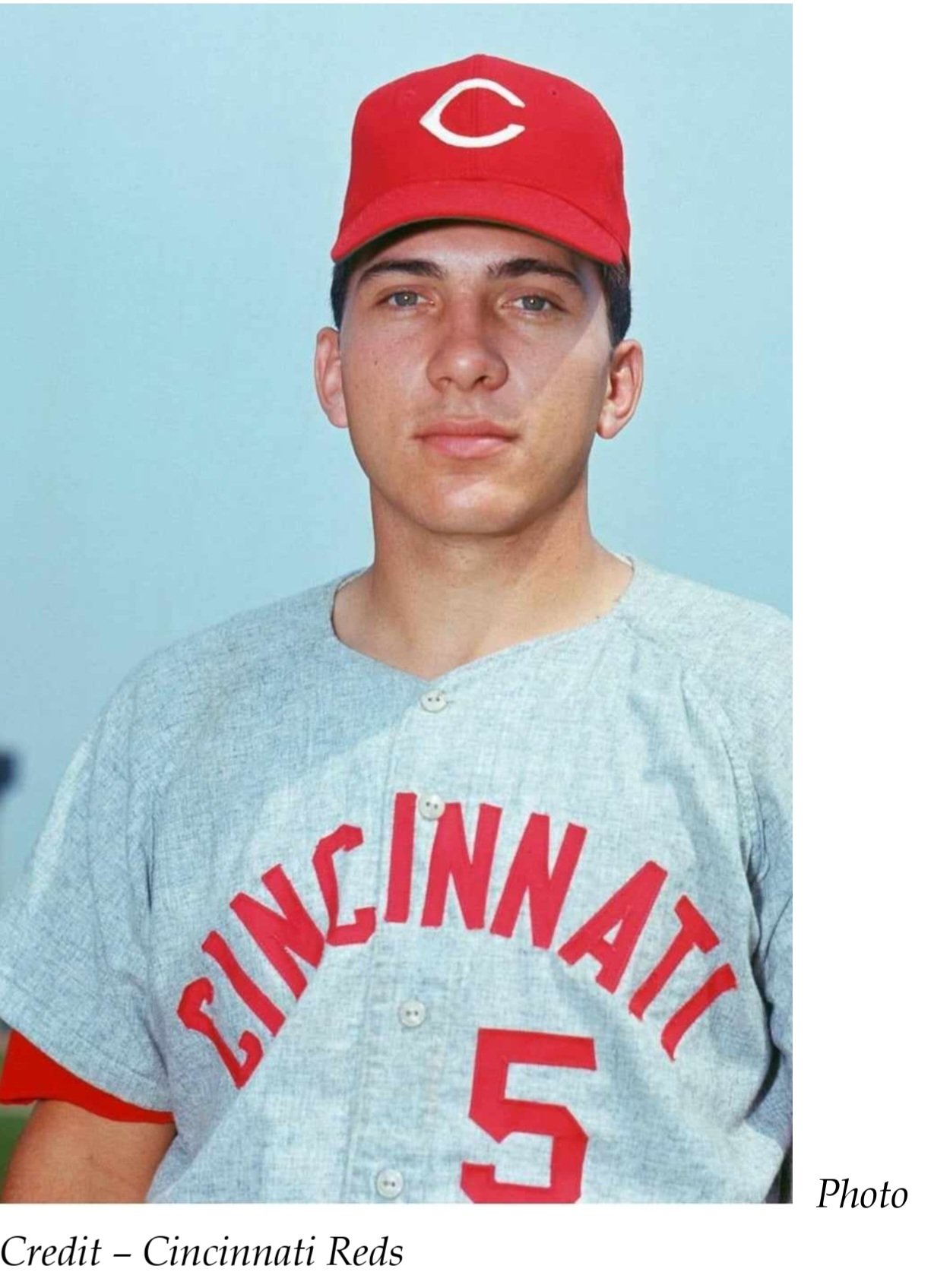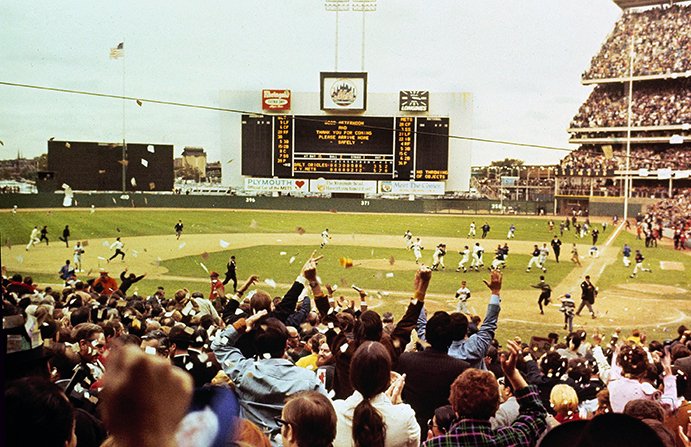by Howie Mooney
If I told you that a Montreal Expos pitcher faced 27 hitters in a game and retired them all, you would probably say something like, “Yes, that was Dennis Martinez…El Presidente, El Perfecto!” Of course you would be correct. But then, what if I told you that there was another Expos pitcher who once faced 27 batters and retired each of them, all in order. Would you know who that pitcher was? What if I told you that his surname was also Martinez. Would you get it then? Well, it was Pedro Martinez who did it on June 3, 1995. But why does this game seem so obscure? Why has this performance received so much less notoriety?
You’ll remember that 1994 was the year of the major league baseball player’s strike. That work stoppage ended the season on August 12, 1994. The players and owners began the season without a collective bargaining agreement – it expired at the end of the 1993 campaign – and 1994 began with the hope that the two sides could eventually come together and agree on a new CBA. Alas, they could not, and the last games of that year were played on August 11. The next day, the players walked out.
For fans north of the 49th parallel, that news was devastating. The Toronto Blue Jays had won the World Series in 1992 and 1993. As 1994 evolved, it became quite clear that one of the best teams in baseball was a team that called a Canadian city home. It was not Toronto though. The Montreal Expos had more wins than any other team in the majors when play stopped on August 12. They were 74-40. The New York Yankees were 70-43.
Many people assume that those two teams would have faced each other in the World Series that season, but that’s truly impossible to just say. 1994 had seen baseball realign their divisions. There were now three divisions in each of the National and American Leagues and there would have been eight teams in the postseason for the first time since 1981 – three division winners and a wild card team from each league.
To that point in their history, 1994 was the best the Montreal Expos had ever been that late in a baseball season. The hopes of Expos’ diehards and baseball fans in Canada was that this could be the Expos’ year. The strike rendered that question moot. There would be no playoffs and no World Series in 1994. During that offseason, Larry Walker had reached free agency. He left Montreal for Colorado.
Before the 1995 schedule began in April, starting pitcher Ken Hill was traded to the St. Louis Cardinals on April 5 for three young players. Ace reliever John Wetteland was dealt to the Yankees for minor leaguer Fernando Seguignol. On April 6, centre fielder Marquis Grissom was traded to Atlanta for Tony Tarasco, Esteban Yan and Roberto Kelly.
When the season began in late April, the Expos opened the season dumping the Pittsburgh Pirates 6-2. By the end of May, Montreal was 19-15 in the middle of the pack in the National League East. They had wrapped up a series against the San Francisco Giants with a 5-4 win. They finished their 11-game homestand with a 6-2 win over the Cardinals before heading to the west coast for their game the next night.
Oh, before the Expos dumped the Cards that evening, they made their 18th round selection in that year’s amateur draft. With the 507th pick, the Expos took a catcher from Junipero Serra High School in San Mateo, about twenty miles south of San Francisco. The name of that catcher was Tom Brady. Yes, that Tom Brady. He elected to go to the University of Michigan and play quarterback on their football team. He would get drafted in the sixth round, 199th overall, by the New England Patriots. He may have done some good things with the Patriots. Nobody is quite sure.
The next night, Jeff Fassero got the decision in a 7-1 Expos victory over the San Diego Padres. Fassero had been the Expos’ opening day starter and he was viewed as the staff ace. This start in San Diego was his eighth of the season. He had won seven of those and lost just one. He was carrying an earned run average of 2.63. But in the team’s second game of that series, the fans in Eastern Canada who stayed up on that Saturday night got to witness some interesting history.
Pedro Martinez would be starting for Montreal that evening. It would be his eighth start of the year as well. His campaign started off well but as the weeks passed, his effectiveness seemed to have waned. Martinez had won his first four starts, and his ERA was a very good 2.03. But in his last three starts, he had pitched 17 2/3 innings and had given up nine earned runs. He suffered a loss and had a couple of no-decisions.
In his last start on May 29, when the Giants were in Montreal, Martinez and the Expos were trailing 5-0 in the sixth inning when he was replaced. He had been facing Matt Williams and unleashed a wild pitch that allowed Barry Bonds to score from third. Gabe White got the next two outs to get out of the inning. Greg Harris retired the Giants in order in their half of the seventh.
But in the bottom of the seventh, the Expos scored six runs to take their first lead of the game. So, Harris was the pitcher of record at this point. He remained that as Jeff Shaw mowed San Francisco down in the eighth. In the top of the ninth though, Mel Rojas was only able to get a single batter out in the inning. He faced six hitters and gave up five runs. The Expos ended up losing 11-6. The Giants’ Dave Burba was tagged with a blown save, but he was also given credit for the victory. Rod Beck got the save when he used sixteen pitches to retire Henry Rodriguez, Mike Lansing and Shane Andrews in order in the bottom of the last inning.
To say that Pedro had become ‘unsteady’ over his last three starts would not necessarily be fair, but it also would not be inaccurate. There may have been something that was compounding the issues for him. To that point in his career, he had developed a reputation for being an aficionado of the ‘chin music’. He liked to throw inside on hitters. Against the Giants in his previous start, he was given a warning by umpire Bruce Froemming just three pitches into that game. In his May 19 start against the Houston Astros, he hit Luis Gonzalez in the calf. Long-time umpire Charlie Williams wrote up the report. Based on Williams’ write-up, Martinez received a $500 fine from the National League.
His teammates and his manager had his back though, even though they were aware of his reputation. Moises Alou spoke to the Montreal Gazette’s Jeff Blair before his June 3 start in San Diego. “Every time he pitches, we’re prepared in the back of our minds to get in a fight. We know if he hits somebody, it’s going to start something. But this. This is unfair. To fine Pedro is unfair.”
On hearing about the fine, Pedro immediately got on the phone to the Major League Baseball Players Association and gave them his notice that he wanted it appealed. He also spoke to Blair. He first used a single word to describe the situation. “Stupid.” He then began to elaborate. “It was stupid for the umpire to write it up the way he did, to write that I hit the batter on purpose. But it isn’t going to change the way I pitch. I can’t forget about pitching inside. Otherwise, I might as well leave the game.”
He had accumulated 37 strikeouts in 44 1/3 innings, but what had been somewhat concerning for his manager Felipe Alou and his pitching coach Joe Kerrigan was a mechanical issue. They had been on him about his ‘tendency to drop his elbow on delivery, which causes his pitches to sail into right-handed batters.’ But on top of all that, Kerrigan had another concern. Yes, “our ongoing mechanical dilemma with Pedro” was one thing but then he was also concerned that this fine and the umpire’s warnings were “messing with his psyche.” Kerrigan termed it all an “overreaction”, and he told Blair that “Don Drysdale’s probably rolling over in his grave right now.”
Alou had a slightly different concern. He was worried that this went higher up the whole chain. “Somebody in some office somewhere is screwing with Pedro Martinez. I’m going to talk with Kevin (Malone, the general manager and vice-president of the Expos) when he gets in here about this because it’s coming from somewhere and I want to know where. I believe the organization has to go out and defend the name of our players. Pedro’s a kid, he can’t be alone in this. So far, I’ve gone out and reasoned with the umpires. Now, it looks like I must go further. It looks like somebody’s trying to teach him about pitching by putting fines on his ass.”
That was what was swirling in the atmosphere in the Expos’ clubhouse as they went into their game against the Padres on that Saturday evening. If you looked at the newspapers in the United States, you’d think that Martinez was a common head-hunter. The lead in every story referred to his propensity to throw inside and hit opposing hitters. But that night, the still somewhat green 23-year-old showed pretty much everyone just how good he would eventually become.
Going into this game, the Expos were six games above .500 at 21-15. The Padres were six below at 14-20. Just keep that in mind for now….and for later. Joey Hamilton would be the starting pitcher for San Diego. He was betrayed by his teammates to start the game, but he got things to where he wanted them eventually.
Lou Frazier led the game off for Montreal and he battled Hamilton. The count was two balls and two strikes when he fouled off a couple more pitches. On the seventh pitch of the at-bat, he hit a grounder to second baseman Jody Reed who made the toss to first sacker Roberto Petagine. Petagine couldn’t find the handle on the ball and Frazier reached on the error. But Hamilton then quickly retired the Expos middle infielders Jeff Treadway and Wil Cordero on fly balls. Then Moises Alou slapped a ball through the left side for a single, moving Frazier to second. Hamilton issued Darrin Fletcher a four-pitch walk to load the bases. But then Tony Tarasco grounded out to Reed to end the threat.
It was then the Padres’ turn to bat and face the beleaguered Martinez. Bip Roberts lofted a fly ball to Lou Frazier in centre field. Steve Finley swung and missed on Pedro’s fourth pitch to him for the strikeout and Tony Gwynn flied out to Moises Alou in left to end that inning. Hamilton then allowed a one-out walk to Shane Andrews but got Mark Grudzielanek, Martinez and Frazier to keep the score at zeroes.
Ken Caminiti led the second off for San Diego, and he saw eight Martinez deliveries before missing on the last pitch for the strikeout. Petagine then flied out to Alou and Brad Ausmus grounded out to Cordero to end the second. Both pitchers went into cruise control after this. Neither man allowed a base runner until the Expos’ sixth when Alou’s ground ball to shortstop Ray Holbert was turned into another Padre error. But the Expos could not capitalize. It was still 0-0.
In the bottom of the sixth, Martinez used just ten pitches to dispose of the bottom third of the San Diego batting order – Reed, Holbert and Hamilton. Pedro hadn’t hit a batter yet. More importantly, he had faced eighteen Padres and retired them all. Sadly, though, his teammates were unable to put a run on the board against Hamilton. The bases remained clean again in the seventh. Martinez got Roberts, Finley and Gwynn on nine pitches. In the eighth, the only base runner was Lou Frazier who managed a single off Hamilton, but the Expos could manage nothing more.
Later, Martinez would tell the Montreal Gazette’s Blair that he really didn’t realize that he’d been perfect on the evening until the seventh inning. The only thing he would hear was dugout chatter like, “Get ‘em back here quickly, Petey” from fellow pitcher Butch Henry, or “Good pitch. Good spot. Good curve,” from Carlos Perez. Martinez told Blair, “Some fan yelled to me in the seventh, ‘Hey Martinez! You aren’t going to be perfect tonight.’ That’s when I realized I hadn’t walked anybody.”
Caminiti led off the eighth and he worked the count full. Martinez then fooled him on the next pitch and got him on strikes. It was the third time Caminiti had struck out on the night and as he left the batter’s box, he broke his bat over his knee in frustration. Petagine and Ausmus went down on five more Martinez offerings. Hamilton was still pitching into the ninth and he allowed a Moises Alou single. But a fly ball out by Fletcher and a 4-6-3 double play off the bat of Tarasco kept the game scoreless heading into the bottom of the ninth.
Martinez was about to face the 7-8-and-9 hitters for the Padres. He had thwarted all 24 batters that had come to the plate thus far in the game. On his second pitch in the ninth, Jody Reed hit a fly ball to right field. Tony Tarasco put it away for the first out. Ray Holbert was scheduled to bat next. Bruce Bochy sent Scott Livingstone to pinch hit for him. Livingstone hit a screamer to deep right field. Tarasco made a hard run and leaped. He caught the ball and hit the wall at the same time. He held on to it for a spectacular catch.
While viewers and fans were trying to catch their breath, Bochy was sending Eddie Williams to bat for his pitcher, Hamilton. Martinez was the picture of composure as he fired three pitches past Williams to end the inning. Martinez had thrown 93 pitches – 65 of them strikes – at 27 San Diego batters and he had retired them all. And yet, the game was still in a scoreless tie.
The new pitcher for San Diego in the top of the tenth inning was Brian Williams. He had played the previous four years in Houston with the Astros. He had a couple of starts in 1991 before making the club and starting 16 games in 1992. He came seventh in rookie-of-the-year voting that season. In 1993 he had been primarily used as a reliever and finished a dozen games for Houston. In 1994, they seemed unable to figure out how to use him and between Christmas of 1994 and New Years Day, he was traded with Ken Caminiti, Andujar Cedeno, Steve Finley and Roberto Petagine to San Diego for six players.
Williams got Grudzielanek swinging at strike three. But then Shane Andrews singled through the left side. That brought Pedro up. He tried to lay a bunt down, but he popped it up and Williams caught it for the second out. That brought the top of the Expos order up. Lou Frazier walked on four pitches, moving Andrews to second. Jeff Treadway then lined a ball to right that brought Andrews home with the go-ahead run. Martinez had a lead! When Wil Cordero flied out to centre, all eyes would then be on Martinez. Could he achieve history?
Pedro Martinez had become the first pitcher to take a perfect game into extra innings since Harvey Haddix had done it for the Pirates against the Milwaukee Braves back in 1959. Haddix made it through the tenth, the eleventh and the twelfth maintaining that stretch of perfect baseball. But that game was still scoreless. In the thirteenth inning, he lost the perfect game when his third baseman, Don Hoak, made a throwing error that allowed Felix Mantilla to get on base. A couple of batters later, Joe Adcock doubled in the only run of the game. The Braves beat Pittsburgh that night 1-0. Haddix lost the perfect game but gained some kind of notoriety with his feat.
The last perfect game pitched in the majors had happened in 1994 when the Texas Rangers’ Kenny Rogers achieved that feat in a 4-0 win over California. The last perfecto in the National League was performed by another Martinez who pitched for Montreal – Dennis Martinez. That was the brilliant game he tossed against the Dodgers at Chavez Ravine in 1991. Play-by-play man Dave Van Horne’s “El Presidente! El Perfecto!” call will never be forgotten by anyone who experienced that gem.
The first batter that Pedro faced in the bottom of the tenth inning in San Diego was their leadoff man, Bip Roberts. Martinez got behind on Roberts, two balls and no strikes. On the third pitch to him, he laced the ball into right field. Roberts wound up on second base with a double. As the ball landed and Roberts scurried out of the batter’s box, Martinez had a blank look – almost disbelief – on his face. He then ran off the mound to cover behind third base. The perfect game was gone. But now, the task was to keep Roberts from coming around to score. Alas, that job would not be left to Pedro.
Mel Rojas came out of the bullpen to try to close this one out for his teammate. As Martinez walked from the mound back to the dugout, the San Diego fans gave him a standing ovation.
Getting the save was absolutely not a slam dunk. Rojas faced Steve Finley. Rojas uncorked a wild pitch that allowed Roberts to move to third with nobody out. On the next pitch, Finley hit a ground ball to first. Andrews fielded the ball, stepped on first and kept an eye on Roberts to see if he was going to run. He did not. Next man up was the always-formidable Tony Gwynn. He got ahead 2-and-0 before hitting a grounder to Treadway at second. Treadway fired the ball home to Fletcher who laid the tag on a running Roberts for the second out. Then Caminiti popped out to Grudzielanek in foul territory by third base.
The game was over. The Expos had won one for the ages.
It wasn’t perfect. It was darn near perfect but there was some anxiety at the end. Alas, the Expos came out of it victorious.
Martinez struck out nine Padres’ hitters in the victory. It was his fifth of the season against no losses. But his outstanding performance while losing the perfect game was still something he was dealing with mentally in the club house after the game. “I know I’m still young, but I’ve been around long enough now that I think I’ve shown people what I can do.”
He was inevitably asked about the fine levied by the National League and his propensity to pitch inside. “I’m not here to hurt anybody. But it seems like whenever I pitch, it’s always the bad things that are brought up. It’s never Pedro Martinez was 11-5 last year, or they never look back to how good I was in Los Angeles as a reliever. It’s only the bad.”
His manager, Felipe Alou only had good things to say about his pitcher. “This was the best answer that Pedro Martinez could give to all the harassment he’s been going through. I’m not surprised that he threw this kind of game. His face changed the last three days, changed for the better. He was more focused. Tonight, he did everything that Joe Kerrigan has been talking about for a while. He stayed on top and slowed down his delivery. Tonight, he was Don Drysdale when he was unhittable. That’s the kind of man I saw on the mound.”
His catcher, Darrin Fletcher echoed his manager’s sentiments. Fletcher told the media that Martinez “spotted his fastball better than he ever has. He didn’t throw as many change-ups or off-speed pitches as he usually does. He only showed the off-speed pitch tonight. He was probably more relaxed than he’s been in the past. He was very mature out there – a very mature pitcher who got better as the game went on.”
A couple of days after, Felipe Alou was still beside himself when he was thinking of the game Pedro had thrown on that Saturday night. “I thought of Juan Marichal when I saw Pedro out there,” Alou told Jeff Blair. And Sandy Koufax and Bob Gibson. I just hope that game removes some of what I call the ‘surmounting’ pressure on the kid, as well as on Joe Kerrigan and myself.”
Alou talked a bit about the pressure that existed on Martinez and how he meant his comparison to Marichal, with whom Alou had played when the two were teammates in San Francisco. “It took Marichal a while before people really saw the calibre of the man – two years for the press to forgive him for a statement he made saying that Warren Spahn threw like him, instead of the other way around.”
Martinez had built the reputation of a guy who hit opposing batters. That was partially created during 1994 when he hit an even dozen men that year. Blair contended that there was a ‘stigma’ over Martinez. In fact, one of the Expos’ broadcasters, Mike Stenhouse, had a conversation before the incredible game that Martinez pitched against San Diego. Stenhouse had spoken to umpire Charlie Williams before the game. Williams wrote the scathing report on which the $500 fine was based. The umpire told Stenhouse that Martinez was “a head-hunter”.
When Alou heard that, he was upset. “Pedro’s better for this game than any of the people who are judging him. This game is in the sh**-hole and there are people who are more interested in a campaign to screw with this kid’s head, the head of a skinny-assed black kid from Manoguayabo.”
Even though Martinez retired 27 of 27 Padres hitters, he was not given credit for a perfect game. That said, the Baseball Hall of Fame in Cooperstown still wanted a ball from that contest to exhibit in recognition of his incredible performance.
That win made the Expos’ record 22-15 – seven games above .500. They then lost four in a row. And then they won four straight. On June 13, they were 26-19. That was the last time they managed to be that far above water. By the end of June, the team was 29-31. They played .500 ball in July but that still kept them two games under at 43-45. The season ended on October 1, and the Expos finished at the bottom of the National League East at 66-78.
In 1996, Martinez would go to his first All-Star Game. He went again in 1997. He also added a Cy Young Award to that All-Star berth. By the end of 1997, the members of that great 1994 team were pretty much all gone. On November 18, the Expos traded Martinez to the Boston Red Sox for Carl Pavano and a player to be named later. That ended up being Tony Armas, Jr. Seven years after that, after Pedro had won a World Series with the Red Sox, the Expos had been relocated to Washington, D.C.
In 2005, they would begin play as the Washington Nationals.
And that ‘skinny-assed kid from Manoguayabo’? In 2015, he joined that ball from his near-perfect game in the Hall of Fame in Cooperstown. The team was gone. The Expos’ fans in Canada had to make a choice to either switch allegiances over to the Toronto Blue Jays or perhaps another team anywhere else in the baseball world.
But, for Pedro Martinez, there was a happy ending. He had, long ago, shed the stigma of being a ‘head-hunter’ and matured into a World Series winner and a Hall of Famer.
* * *
You can hear Howie and his cohost, Shawn Lavigne, on The Sports Lunatics Show, a sports history podcast. Find the show on Apple Podcasts, Spotify, iHeart Radio, TuneIn Radio or wherever you get your podcasts. Also check out www.thesportslunatics.com to read plenty of Howie’s other stories and listen to past shows.
Howie evokes a ton of memories in his latest book, An Unlikely Story – How the 1981 Ottawa Rough Riders Just Missed a Miracle. You can also read amazing sports stories in his previous three books, Crazy Days & Wild Nights, MORE Crazy Days & Wild Nights and The Consequences of Chance. You can also catch the show on YouTube.
The Sports Lunatics Show airs in Ottawa every Sunday at noon on CKDJ 107.9 FM. If you’re not in Ottawa, listen online at ckdj.net.

